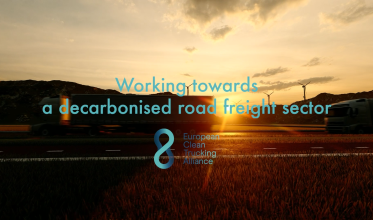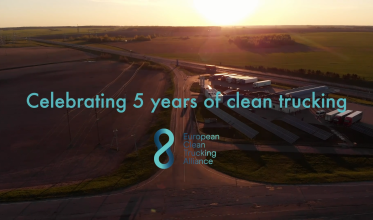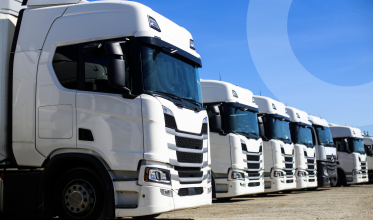The European Clean Trucking Alliance welcomes the very important legislative proposals adopted by the European Commission on 14 July as part of the ‘Fit-for-55’ package. The Alternative Fuel Infrastructure Regulation (AFIR), the proposed CO2 standards for vans and the proposed revised Energy Taxation Directive are decisive legislation to decarbonise commercial road transport but certain conditions still need to be met to ensure the transition to zero emission.
Alternative Fuel Infrastructure Regulation (AFIR)
Two major steps forward are brought by this new regulation:
- The inclusion of targets for deploying truck charging and hydrogen refuelling infrastructure. The introduction of binding targets for 2025 and 2030 for the deployment of zero-emission truck infrastructure along the TEN-T core and comprehensive network, as well as at urban nodes and in Safe and Secure Truck Parking Areas, is a much needed development for the transport industry. “AFIR is crucial to enable the roll-out of a European infrastructure network to allow zero-emission trucks to travel across borders” commented Kristin Kahl, Spokesperson of the European Clean Trucking Alliance.
- The change of the legislative instrument, from a directive into a regulation. This means that the regulation will have binding legal force throughout every Member State from the moment it enters into force.
However, despite these encouraging signals, a few issues remain such as the required power level of the truck chargers, which is currently too low to satisfy the need to recharge during the legal resting breaks of the drivers.
The proposal also fails to include national fleet-based targets for heavy-duty vehicles chargers. This would fail to ensure that sufficient infrastructure is rolled out at pace with the market developments for zero-emission trucks and with the expected demand from companies to decarbonise their fleets. “It will be paramount for the Council and the European Parliament to amend the proposal to include such national fleet-based targets and increase the power output required by the proposed distance-based targets” continued Kristin Kahl.
Van CO2 standards
The proposed 100% reduction target for 2035 is, at last, the right signal for van makers to invest in increasing the supply of zero-emission vans. However the 50% CO2 reduction target for 2030 is not sufficient to deliver the critical mass of e-vans needed for zero-emission city logistics in the 2020s. “Member States and the European Parliament should up this ambition, to make sure businesses can source the zero-emission vehicles they need already” concluded Kristin Kahl.
Energy Taxation Directive
The proposed revised Energy Taxation Directive fails to support the business case for zero-emission trucks, in particular not allowing Member States to apply tax discounts for the renewable electricity used for charging trucks.
In conclusion, the European Clean Trucking Alliance welcomes many of the proposals on charging infrastructure and CO2 emissions standards for vans as long overdue steps in the right direction, but remain concerned that some measures, in particular concerning energy taxation and the capability and quality of charging and refuelling points, do not go far enough.
Spokesperson contact
Kristin Kahl, Spokesperson of the European Clean Trucking Alliance
Authorized Representative, CONTARGO GmbH & Co. KG, kkahl@contargo.net, +49 151 58031 934
More about the Alliance
ECTA brings together a broad and diverse range of European players in the road transport of goods such as leading businesses, organisations and civil society associations (see Annex below) that share a strong commitment to accelerate the EU’s transition to zero-emissions trucks.
ECTA business members include major hauliers, logistics and consumer goods companies in Europe and beyond. Altogether, the ECTA business members employ more than 2.3 million people globally and have over EUR 400 billion yearly revenue. This latter figure is comparable to the GDP of Austria[1]. The organisations that have joined ECTA are some of the civil society organisations and associations with the strongest network of members and experience in transport and mobility at the European level.
For more information, please visit the ECTA website: www.clean-trucking.eu
[1] Nominal GDP in 2020, Eurostat





